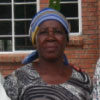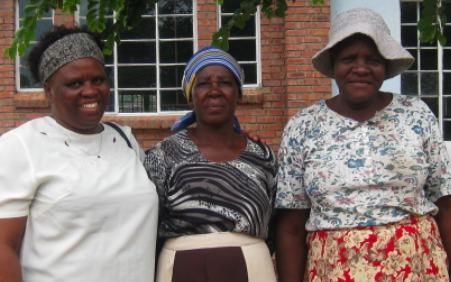The Volunteer Who Changed A Boy’s Life
One of the greatest joys that I have when I visit grantee-partners, is meeting the volunteers who support children and strengthen families. On my site visits, I meet so many women and men who give their hearts and minds, time and talent to transform the lives of the most vulnerable members of their community.
They provide a range of support: listening and attentive ears to make sure children are heard; problem solving skills to overcome obstacles that keep children out of school; outreach and relationship-building to ensure children are attended to when they go to the clinic; food to make sure the children get a daily meal to nourish their bodies.
Many of these volunteers give selflessly, even though they themselves have very little. Their own stories both break my heart and lift my spirits. They are the everyday heroes that sacrifice the little they have to make sure that each child is seen, heard and cared for, with intimacy and consistency.
On my most recent trip to Zimbabwe, I visited the Bongani Orphan Care Program of the United Congregational Church of Southern Africa.
While touring their facilities where they have a daycare center, I met a little boy. I will call him Sipho (not his real name—a nickname which means “gift”). Sipho was here to play with other children on the playground.
As I greeted him, one of Bongani’s volunteers, Mrs. Phakathi, walked up to us. There was a tenderness and joy in her voice as she asked Sipho how he was doing. “Are you going to grade one next year?” Sipho shook his head “no” in response.
“I think he is ready,” Mrs. Phakathi told me. “I will follow-up with his grandmother to find out why he is not yet registered. He probably needs a birth certificate.”
After chatting with us for a few minutes, Sipho left to join his friends. Then Mrs. Phakathi told me Sipho’s story.
By the tender age of four, Sipho and his siblings had lost both their mother and their father. They were now under the care of their elderly grandmother, living in a high-density suburb of Bulawayo. When Bongani identified Sipho’s household as requiring assistance, this young boy was not well. He was malnourished and had sores all over his body.
His grandmother was doing her best, but she had very little to help her grandchildren.
Bongani’s program provided meals for the family and took Sipho to the clinic to get treatment. But more than that, they visited the family on a regular basis, sometimes just to sit with Sipho and find out how he was doing. In other cases, they came to help Sipho’s grandmother with a specific problem, like getting a death certificate for Sipho’s mother. As Sipho regained his health, he was enrolled in Bongani’s preschool program.
Today, Sipho is healthy, strong, and full of energy. He is playing with other children in his community. He has been doing well at preschool, where he is learning to write his name.
"Your eyes are a little red,” Mrs. Phakathi observed. “I will come and see your grandmother and make sure we take you to the clinic for a visit to find out what is going on. We should not wait until it becomes a serious problem.”
I didn’t meet Sipho’s grandmother. But I know she is old and struggling to make ends meet. She is left all alone to care for her grandchildren at a time when her children would normally be taking care of her.
What is heartening is that she does not have to bear the burden alone. Mrs. Phakathi knows Sipho almost as intimately as his grandmother does. She is involved and engaged in his life. She knows how he is performing in preschool. She notices that his eyes are red and quickly makes a plan to make sure he gets a check-up. She is eager to make sure that Sipho is enrolled in first grade.
As she mentioned the issue of the birth certificate, I could tell that she was already planning how she would navigate the halls of the Registrar’s office to make sure Sipho gets the precious piece of paper that will allow him to enroll in school. And that she would advocate for Sipho to make sure that the Bongani Orphan Program will pay his school fees and buy him a school uniform, school shoes, a pencil, and a ruler.
With the love and care of Mrs. Phakathi—one of hundreds of volunteers that work with the Bongani Orphan Care Program—Sipho is able to laugh and play with other children. Because of her commitment and sacrifice, and the support of Bongani’s staff, I know Sipho is now attending first grade. 


